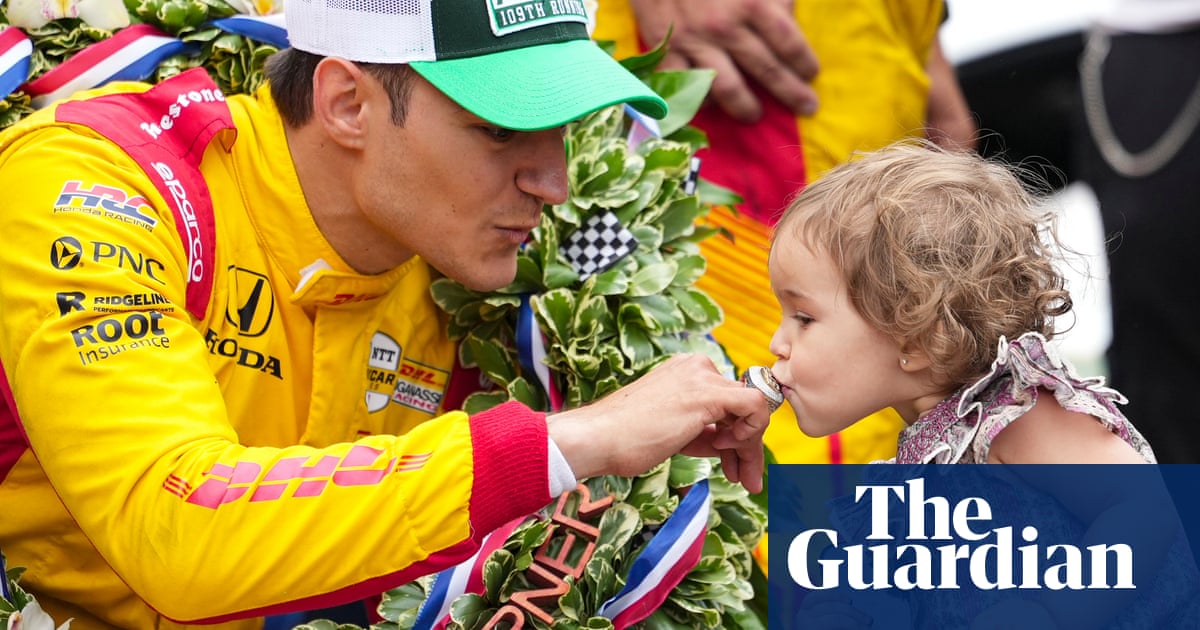Alex Palou has become the first driver from Spain to win the Indianapolis 500 by holding off former Chip Ganassi Racing teammate Marcus Ericsson over the closing laps on Sunday at Indianapolis Motor Speedway.
Palou, who has won three IndyCar titles in four years – including the last two, came to the speedway with four wins through the first five races this season. But it was No 6, “The Greatest Spectacle in Racing,” that he had circled on his calendar.
Without an Indy 500 win, Palou said his career resume would never be complete.
Palou stopped the car just beyond the Yard of Bricks. He jumped out his car and took off in a run down the front stretch, pulling off his gloves and tossing them behind him, and ultimately was engulfed by his father, Ramon, and his Chip Ganassi Racing team in a jubilant celebration.
Scott Dixon gave him a big hug, so did Dario Franchitti, with both Ganassi Indy 500 winners welcoming Palou into the exclusive club.
“I cannot believe it. What an amazing day. What an amazing race,” Palou said. “I cannot believe it. It was tough. Tough conditions out there, especially if you were like, third or fourth in the pack. Even leading, the fuel consumption was super high, so they didn’t want me to lead. I wanted to lead, honestly, so yeah, made it happen.”
Meanwhile, Ericsson climbed from his car and pressed his hands to his face at the disappointment of coming so close to a second Indianapolis 500 victory.
Ericsson, the 2022 Indy 500 winner, finished second for Andretti Global in a 1-2 finish for Honda. David Malukas was third for AJ Foyt Racing and the highest-finishing Chevrolet.
Josef Newgarden’s bid to win three consecutive Indy 500s ended with a fuel pump issue. He was trying to become the first driver to come from the back row to win after he and Team Penske teammate Will Power were dropped to the back of the field for failing inspection before qualifying.
Power wound up 19th, the highest-finishing Penske driver on a miserable day for the organization owned by Roger Penske. He earlier this weekfired his top three IndyCar executivesfor a second technical infraction in just over a year, and has had to defend the optics of his teams failing inspections when he also owns IndyCar, Indianapolis Motor Speedway and the Indy500.
Penske has won the Indy 500 a record 20 times.
It was Indy 500 win number six for Ganassi, who has been on a dominating wave since hiring Palou ahead of the 2021 season. Palou then won the championship that year, has added two more titles and now seems on pace for a fourth one.“The guy is just unbelievable – I don’t know what else to say,” Ganassi said. “It is an incredible thing – it’s going to make Alex Palou’s career, it is going to make his life, and it has certainly made mine.”
Kyle Larson won’t complete “the double” after crashing out of the Indianapolis 500 before he headed to North Carolina to compete in the Coca-Cola 600 Nascar race.
